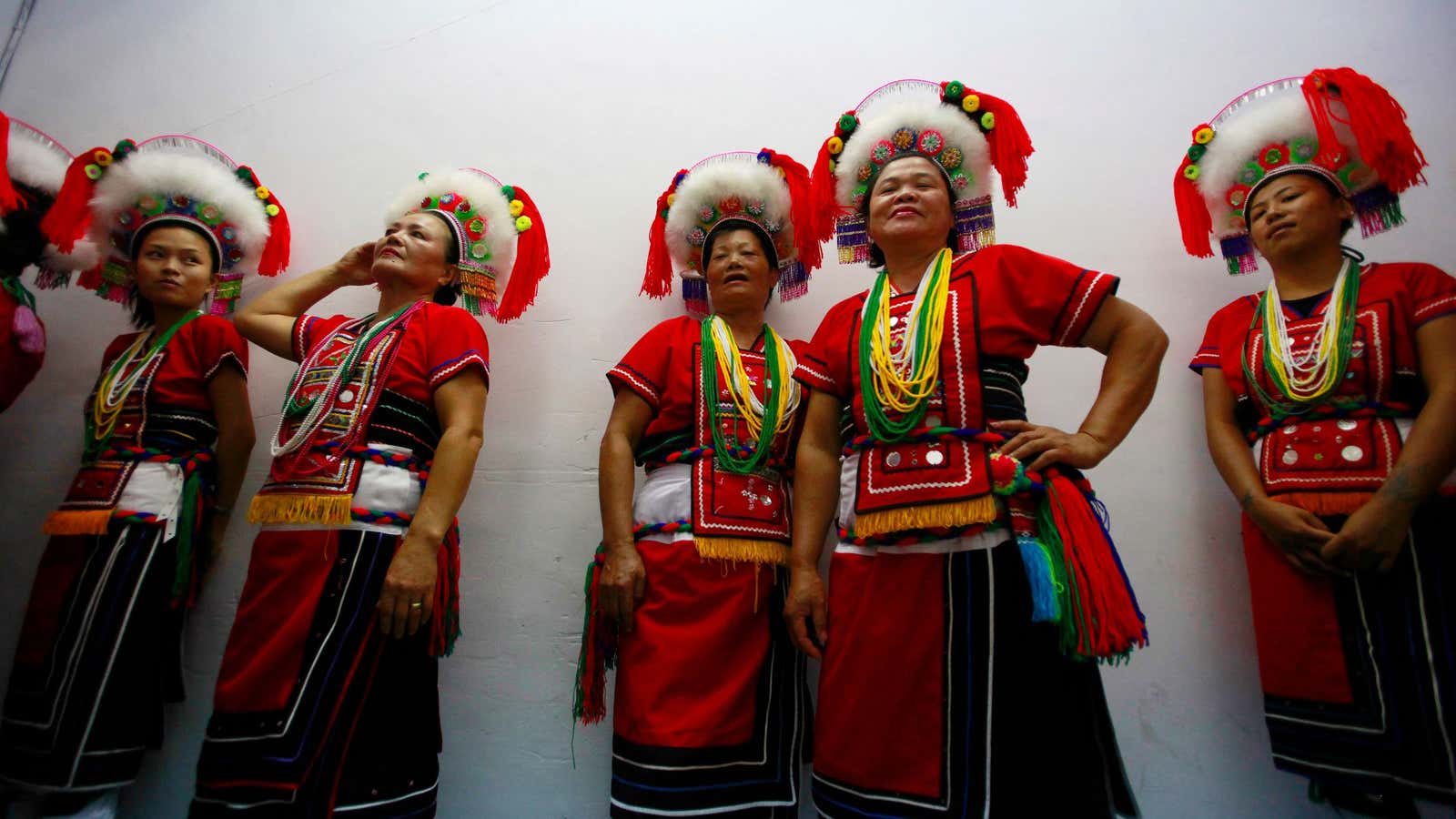With much of the world’s attention on Taiwan colored by its decades-long enmity with China, it can be easy to forget that centuries of history preceded the arrival of ethnic Chinese on the island.
In response to a recent speech by Xi Jinping in which he warned he would not rule out military means to force the unification of Taiwan with China, the island’s indigenous people issued an open letter addressed to the Chinese president to challenge Beijing’s claims.
Published yesterday (Jan. 8) in Chinese (link in Chinese) and translated here into English, the letter asserts that the various indigenous tribes of Taiwan, which have inhabited the land for 6,000 years, do not belong to the “so-called ‘Chinese nation,'” a reference to the oft-used rhetoric by Beijing that Taiwan is an inalienable part of China, and that it is a “historical conclusion” that Taiwan and China should be one country.
After the end of the Chinese Civil War in 1949, the defeated Nationalist forces fled to Taiwan and established a competing Chinese government there, while the Communist Party ruled from Beijing. Since then, Taiwan has governed itself and holds democratic elections, while Beijing has never relinquished its claims over the island. Forced to choose between the governments in Beijing and Taipei, almost all countries in the world have diplomatic relations with China, and only maintain quasi-diplomatic ties with Taiwan.
Lost amid all the military conflicts and great-power tussles of the 20th century, however, is the voice and history of Taiwan’s indigenous people, who today number over 500,000, or 2% of the country’s population. Like indigenous peoples in other countries in the world, they’ve experienced hundreds of years of exploitation and colonization from a series of conquerors. “We… have witnessed the deeds and words of those who came to this island, including the Spanish, the Dutch, the Koxinga Kingdom, the Qing Kingdom, the Japanese, and the Republic of China,” the letter says. Koxinga refers to the Japanese-born Chinese conqueror who fled Ming dynasty China to establish a government in Taiwan in 1661, then under Dutch control. Koxinga himself is claimed as a national hero (paywall) by Japan, Taiwan, and China, underscoring the complex history and notions of identity in that part of the world.
“We do not share the monoculturalism, unification, and hegemony promoted by you, Mr. Xi,” the letter asserts. “It is by far not a path to greatness.” It also noted the violations of human rights going on in parts of China such as Xinjiang, Tibet, and Hong Kong, and derided Xi’s offer of a “One Country, Two Systems” model for unification on those grounds.
The authors of the letter, representatives of two dozen of Taiwan’s indigenous tribes, also criticized the modern state of Taiwan as one that was built upon their “motherland” and said they have “have never given up [their] rightful claim to the sovereignty of Taiwan,” but acknowledged that since the election of president Tsai Ing-wen in 2016 the country has started recognizing the ethnic and cultural diversity of Taiwan.
Tsai was the first Taiwanese leader to apologize to the country’s indigenous people, and has pledged to bring about transitional justice to the population, which includes promoting historically accurate accounts of violations committed against indigenous people, and reparations for their suffering. She has also sought to play up (paywall) Taiwan’s ethnic diversity, in contrast to Xi’s promotion of ethnic Han culture over China’s ethnic and religious groups. However, many indigenous people believe that the Tsai government has reneged on its promises, for example by continuing to allow large corporations to build on their land—just the latest in the centuries-long struggle for indigenous rights in Taiwan.
